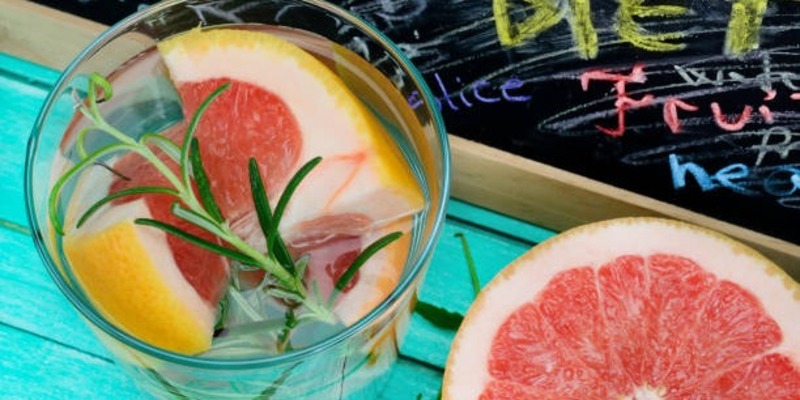If you suffer from Irritable Bowel Syndrome (IBS), you know how debilitating it can be. The chronic pain, unpleasant symptoms, and its impact on your daily life are significant - not to mention the effect that food choices can have on triggering IBS flare-ups.
It's important to consider what foods cause increased discomfort since any ingredient could affect people with IBS differently. To help navigate safely eating a little easier, we will look at some common culprits regarding Foods To Avoid With IBS.
Introductory Overview of Irritable Bowel Syndrome
The large intestine is impacted by the chronic gastrointestinal illness known as Irritable Bowel Syndrome, or IBS. It may result in discomfort, abdominal pain, and changes in bowel habits, including constipation and diarrhoea. The development of IBS is thought to be influenced by dietary and lifestyle variables, despite the fact that the precise cause is yet unknown.
Foods that may trigger IBS symptoms
Patients with IBS should be aware of the foods they eat and identify any potential triggers that could worsen their symptoms. While everyone's body responds differently to different food items, some common dietary triggers include dairy products (especially milk and cheese), fatty or greasy foods, caffeine and alcohol, spicy foods, processed and refined sugars, artificial sweeteners, and high-fiber vegetables (such as broccoli and Brussels sprouts).
What foods to avoid to protect your digestive health

Irritable Bowel Syndrome (IBS) is a common condition that affects the large intestine and can cause symptoms such as abdominal pain, cramps, diarrhea, gas, bloating, constipation, and irregular bowel movements. While there's no one-size-fits-all diet for IBS, some foods have been known to cause or worsen digestive symptoms for those with IBS. Eating these foods can stress your digestive system, leading to uncomfortable and painful flare-ups.
To help you manage your IBS symptoms, knowing which foods may trigger your flare-ups and learning how to avoid them is important. Here are some common foods to avoid with IBS:
1. Dairy products – Milk and other dairy products like cheese, yogurt, ice cream, and butter can be difficult to digest for those with IBS due to their lactose content. Lactose is a type of sugar that can cause gas and bloating in many people. If you're sensitive to lactose, try switching to dairy alternatives like almond milk, oat milk, and coconut yogurt.
2. High-FODMAP foods – FODMAPs are a type of sugar found in many common foods that can be difficult for those with IBS to digest. Foods high in FODMAPs include garlic, onions, legumes and pulses, apples, pears, some fruits and vegetables, and wheat-based products.
3. Processed foods – Many processed foods contain high salt or sugar, which can be difficult for your digestive system to process. Try to opt for whole, unprocessed foods instead.
4. Fried and fatty foods – Deep-fried foods and those high in fat can be hard to digest, leading to uncomfortable IBS symptoms. Opt for healthier cooking methods such as steaming, baking, grilling, or stir-frying.
5. Carbonated drinks – Sodas and other carbonated drinks contain a large amount of gas, which can cause bloating and discomfort in those with IBS. Stick to plain water or unsweetened tea instead.
If you have Irritable Bowel Syndrome (IBS), knowing the foods that may trigger your symptoms and learning to avoid them is important.
High-Fiber Foods to Avoid

Fibrous foods are often considered healthy, but for those who suffer from IBS, they can trigger uncomfortable symptoms. High-fiber foods should be avoided as much as possible when managing IBS:
- Whole grains such as oats, brown rice, quinoa, and bulgur
- Legumes such as lentils, black beans, chickpeas, and kidney beans
- Nuts and seeds such as almonds, cashews, sunflower seeds, and chia seeds
- Fruits with skins or edible membranes, like apples, pears, plums, and peaches
- Vegetables with tough fibers like broccoli, cabbage, Brussels sprouts, and artichokes
- Fruits with edible seeds, such as raspberries, blackberries, and strawberries
Consuming high-fiber foods can lead to an increase in abdominal pain, bloating, gas, and constipation. Therefore, those managing their IBS should be mindful of the fiber content of their meals and snacks.
FAQs
What foods help settle IBS?
Comforting oatmeal, white rice, boiled potatoes, eggs, bananas, and applesauce can help settle IBS symptoms. They're easy to digest and typically don't contain any of the trigger foods listed above.
Are probiotics good for IBS?
Yes! Studies have found that probiotics can help reduce symptoms of IBS, such as abdominal pain, bloating, and constipation. Probiotics are live bacteria found in certain foods like yogurt and kimchi or taken as a supplement.
Is yogurt good for IBS?
Rated with probiotics, yogurt can be beneficial for those with IBS. However, it should be noted that dairy products have been known to worsen digestive symptoms in some people. Ifdoctors'lactose intolerant, try switching to a non-dairy alternative like coconut yogurt instead.
Conclusion
In conclusion, it is important to understand the connection between diet and Irritable Bowel Syndrome. As with any health condition, diet should be tailored to your doctors’ advice and health goals. This includes avoiding certain foods that can worsen digestive symptoms while focusing on high-fiber foods and healthy fats that benefit digestion. Dairy products, caffeine, and alcohol can all cause flare-ups in IBS sufferers, as can refined sugars.







